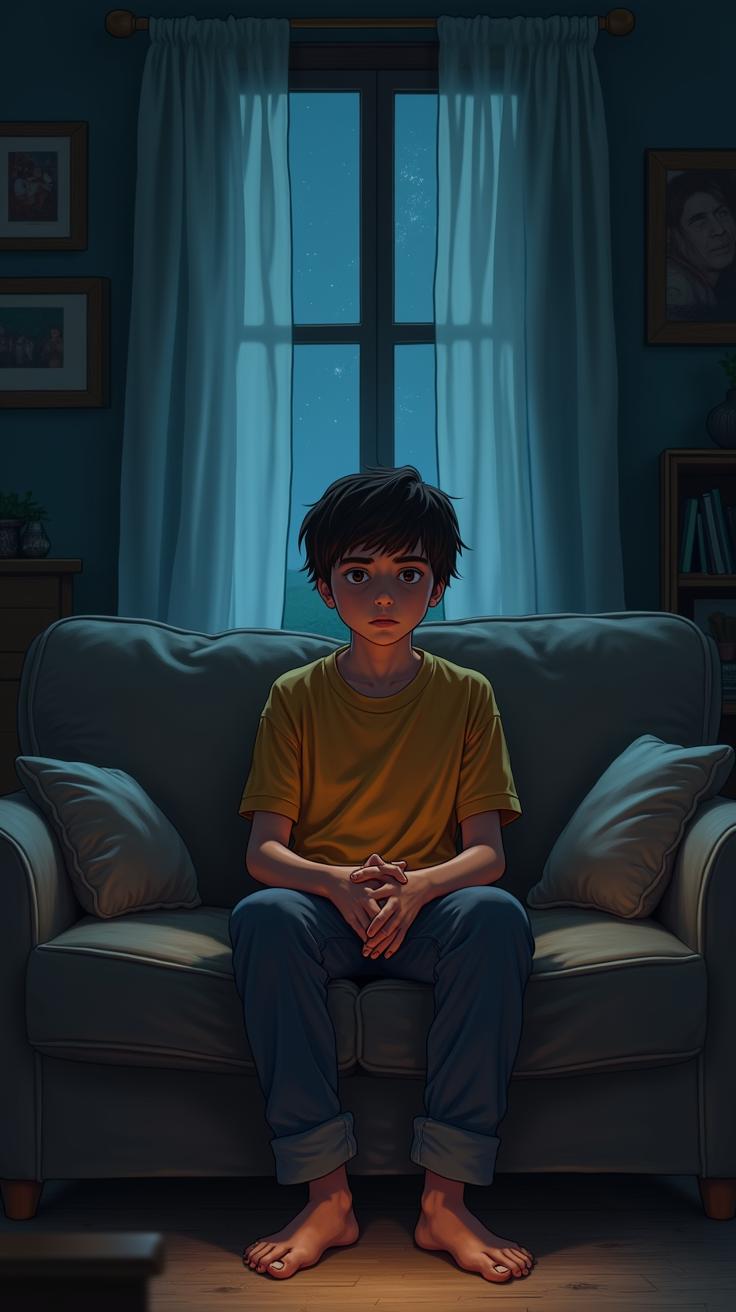AITA for not helping with my parents’ marriage issues?
 Image credit: Pixabay (This is example image – Not the actual photo)
Image credit: Pixabay (This is example image – Not the actual photo)
When Family Dynamics Turn Toxic
In a household where daily arguments are the norm, a 17-year-old girl finds herself caught in the crossfire of her parents’ tumultuous relationship. After years of being the unwilling emotional sponge for her mother’s grievances, she finally sets a boundary, only to be met with accusations of being cold-hearted. This relatable struggle highlights the pressure many young people face when navigating their parents’ conflicts, raising questions about the responsibilities children should bear in adult relationships. Can she truly be expected to mend a marriage that seems beyond repair?
Family Drama and Conflict Resolution: A Daughter’s Dilemma
A 17-year-old girl finds herself caught in the middle of her parents’ ongoing conflicts, leading to significant emotional strain. The situation escalates as her mother turns to her for support after fights, creating tension and confusion. Here’s a breakdown of the situation:
- Background: The girl’s parents have clashing personalities, resulting in daily arguments.
- Role of the Daughter: Initially, she attempted to mediate and calm the situation, but her efforts were largely ignored.
- Emotional Toll: After fights, her mother vents frustrations to her, which negatively impacts the daughter’s mood and mental well-being.
Recently, the daughter reached a breaking point and expressed her feelings to her mother:
- Request for Change: She asked her mother to stop using her as a sounding board after fights.
- Mother’s Reaction: The mother accused her of being cold-hearted and lacking emotional support.
- Social Life Critique: The mother suggested that the daughter’s social life issues stem from her inability to support the family.
The daughter attempted to provide constructive feedback:
- Advice Given: She suggested that her mother communicate directly with her father or seek professional counseling.
- Mother’s Response: The mother insisted that the daughter would feel guilty if the parents divorced, implying that she should take action to prevent it.
- Understanding of Divorce: The daughter expressed confusion about her role in her parents’ marriage and questioned whether it was her responsibility to intervene.
This situation highlights several key themes:
- Family Drama: The ongoing conflict between the parents creates a toxic environment for their child.
- Conflict Resolution: The daughter seeks to establish boundaries but faces resistance from her mother.
- Wedding Tension: The underlying issues in the parents’ marriage raise concerns about the potential for divorce.
In conclusion, the daughter grapples with the emotional burden of her parents’ conflicts and questions her role in their relationship. Her request for boundaries is met with resistance, leaving her feeling trapped in a situation that she feels she cannot control. The dilemma raises important questions about family dynamics and the responsibilities of children in their parents’ relationships.
This is Original story from Reddit
 Image credit: Pixabay (This is example image – Not the actual photo)
Image credit: Pixabay (This is example image – Not the actual photo)
Story
My parents have always had clashing personalities, and it’s common for them to pick fights with each other every single day, even multiple times. I, F17, used to try and calm them down or try and stop the fight, but it’s proved useless as they never listen to me and just continue screaming at each other without achieving anything. Recently, after their fights, my mom has been turning to me after my dad leaves and continuing to shout all her complaints to him to me.
This has been happening for a couple of years or so now, and I don’t really know what to do besides listen. However, it really messes with my head sometimes and puts me in a bad mood for the rest of the day, so today I asked if she could stop turning to me and shouting after their fights. She called me cold-hearted and said I offered no emotional support and started talking about that’s why I don’t go out with friends and my social life.
I told her to stop, but she kept going on about how I should be trying to help with their marriage if I care about my parents. I told her if she really wants help, she should at least try talking to him instead of shouting or get a counselor. Despite this, she kept saying that if they divorce, I’ll feel guilty because I didn’t do anything to fix it and stuff like that, basically saying I needed to save them from divorcing.
She was also saying that I don’t understand what a divorce means and that once they divorced, I’d regret it or something. But I don’t even know how I would help or if I’m even supposed to do that as their child. AITA for saying there’s nothing I can do to help?
View the Original Reddit Post Here
Summary of Reddit Comments
The top Reddit comments indicate a strong consensus that the individual is NTA, emphasizing the importance of distancing oneself from toxic family dynamics. Users agree that finding a neutral space, like libraries or coffee shops, is crucial for maintaining mental well-being and avoiding being dragged into family issues.
- Most users advocate for creating personal boundaries to protect oneself.
- There is a shared understanding that one cannot fix others’ problems and should prioritize their own mental health.
Overall Verdict
NTA
Expert Advice for Resolving Family Conflict
Family conflicts can be incredibly challenging, especially when children feel caught in the middle. Here are some practical steps for both the daughter and her mother to help navigate this difficult situation:
For the Daughter
- Establish Clear Boundaries: Clearly communicate your need for emotional space. You might say, “I love you and want to support you, but I need some time to focus on my own feelings after the arguments.” This sets a respectful boundary while expressing your care.
- Seek Support: Consider talking to a trusted friend, family member, or counselor about your feelings. Having an external support system can help you process your emotions and gain perspective.
- Engage in Self-Care: Prioritize activities that bring you joy and relaxation, such as hobbies, sports, or spending time with friends. This can help you recharge and maintain your mental well-being.
- Encourage Professional Help: If you feel comfortable, suggest that your mother consider speaking with a therapist. Professional guidance can provide her with tools to manage her emotions and improve communication with your father.
For the Mother
- Reflect on Communication: Take time to consider how your conversations with your daughter may affect her. Acknowledge her feelings and understand that she is not responsible for your marital issues.
- Practice Active Listening: When your daughter expresses her needs, listen without becoming defensive. Validate her feelings by saying, “I understand this is hard for you, and I appreciate you sharing your thoughts with me.”
- Seek Couples Counseling: If possible, suggest that you and your partner attend counseling together. This can provide a safe space to address conflicts and improve your relationship dynamics.
- Focus on Self-Improvement: Work on managing your emotions independently. Engage in activities that promote your mental health, such as mindfulness, exercise, or journaling.
For Both Parties
- Open Dialogue: Create a safe environment for open discussions. Schedule regular family meetings where everyone can express their feelings without judgment.
- Set Family Goals: Work together to establish family goals that promote unity and understanding. This could include planning family activities or setting aside time for each other.
- Practice Empathy: Both the daughter and mother should strive to understand each other’s perspectives. Acknowledging each other’s feelings can foster compassion and reduce tension.
By taking these steps, both the daughter and her mother can work towards a healthier family dynamic. Remember, it’s essential to prioritize mental health and well-being while navigating complex family relationships.
Join the Discussion
 Image credit: Pixabay (This is example image – Not the actual photo)
Image credit: Pixabay (This is example image – Not the actual photo)
What do you think? Would you have handled this differently?
Share your thoughts below! Vote: Do you agree with Reddit’s verdict?





